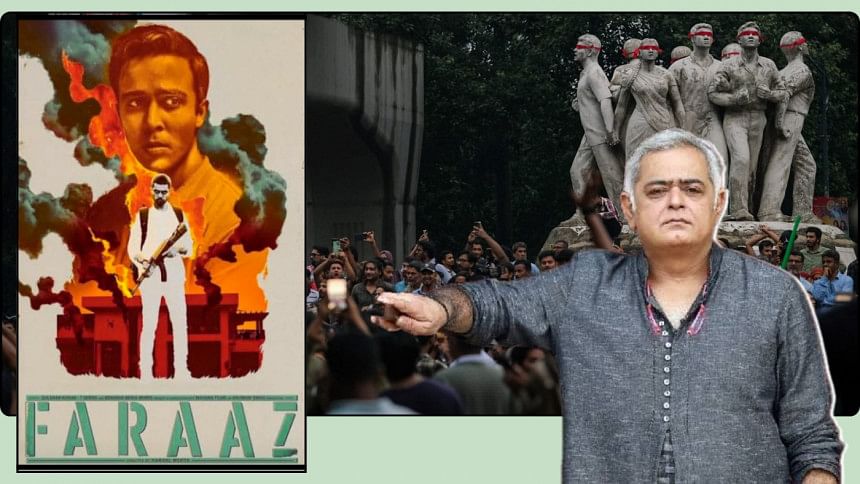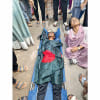Sheikh Hasina wanted to control everything: Hansal Mehta

While many Indian celebrities are drawing attention to the violence and chaos in Bangladesh following the fall of former Prime Minister Sheikh Hasina, "Scam 1992" director Hansal Mehta has voiced support for student protests and criticised Hasina's authoritarian regime through his X (formerly Twitter) account.
He shared his experience releasing "Faraaz", banned in Bangladesh but available on Netflix. The film, based on the 2016 Holey Artisan Bakery attack, was delayed nearly 18 months.
The director recounted, "The otherwise very amiable Bangladesh High Commissioner visited my home, and I was repeatedly threatened or contacted by individuals claiming to be from the Indian 'cabinet secretariat,' warning that the film would strain India-Bangladesh relations."
The director also revealed that he received multiple calls from high-ranking police officials and alleged secret service agents. He was provided police protection due to perceived threats from terrorist organisations.
Seeing the events unfold in Bangladesh reminds me of the Faraaz release saga. It is streaming globally on Netflix except in Bangladesh where it has been banned.
The release of 'Faraaz' based on the Holey Artisan Bakery, Dhaka attack of 2016 was sought to be stalled for nearly… pic.twitter.com/dQIP9pF9P1— Hansal Mehta (@mehtahansal) August 5, 2024
"I endured lengthy litigation in Indian courts and faced rude allegations from many who said, 'This is not your story to tell.' I am still battling bogus litigation in Bangladesh courts," he added.
He believed that he had to endure these harassments due to negatively portraying Sheikh Hasina's government and machinery in the film.
"This government wanted to keep their ineptitude and authoritarian leadership hidden from the outside world. They attempted to silence us to cover up their violent actions, suppress our right to tell a story that reflects our times, critique authoritarian regimes, and serve as a warning for our youth," stated Hansal.
Ultimately, the director expressed hope for justice for the people of Bangladesh and any country at risk from such authoritarian rule.
"May equality, truth, and justice always prevail. Let every citizen of the free world stand tall," he concluded.
Hansal Mehta's 2022 film "Faraaz" is based on Nuruzzaman Labu's book "Holey Artisan: A Journalistic Investigation", which examines the 2016 terror attack on a Dhaka bakery.
Hansal Mehta told Telegraph Online that he had declined a request from the Bangladesh High Commissioner for a preview of his film, which is now streaming on Netflix. "Bangladesh had not faced an attack of this magnitude and did not handle it well. Hasina wanted to control everything related to its narrative," he said.
The director also added that this was larger than a Bangladesh story, "You can change the name of the country and the religion of the characters, and the story would apply to any majoritarian state where it's the right-wing versus progressives."
In February 2023, the High Court halted the film's release in the country following a petition by Ruba Ahmed, the mother of Abinta Kabir—one of the victims of the Holey Artisan attack. She had previously stated that such incidents "must not be represented, not now, not ever."
Last April, the Ministry of Information and Broadcasting also stated that "Faraaz" should not be made available on Netflix, Amazon Prime, other online platforms, television channels, or film screenings in Bangladesh.

 For all latest news, follow The Daily Star's Google News channel.
For all latest news, follow The Daily Star's Google News channel. 









Comments